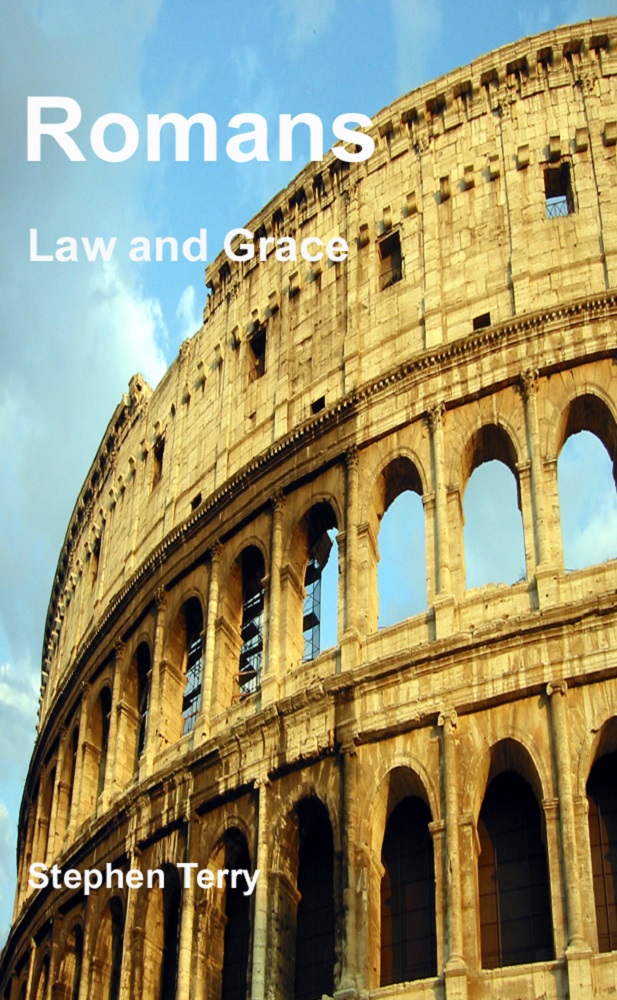Overcoming
Sin
Stephen
Terry
Commentary
for the November 18, 2017 Sabbath School Lesson
 “For
sin shall no longer be your master, because you are not under the law, but
under grace.” Romans 6:14, NIV
“For
sin shall no longer be your master, because you are not under the law, but
under grace.” Romans 6:14, NIV
Many look at Romans 6:1-4 as sufficient justification to
preach that Christians are obedient and the lost are not. But is it? First of
all, Romans 3:10 points out that no one is righteous. Note that it does not
say, "no one is righteous except Christians." Christians are very
much a part of that horde of the unrighteous. If we consider Paul's letter to
the Corinthians (15:52-54), where he relates that we will all be corruption
until the Parousia, it becomes apparent that Paul is under no such
misconception as to think that people will be obedient to God simply because
they are now Christian. Sadly, many a Christian has fallen away from fellowship
because of this mistaken belief when they find that others in the church may be
no more righteous or obedient than those who have never known Christ.
So what is going on with Paul's verses here in Romans 6?
As we previously alluded to when visiting chapter two, some have used portions
of that chapter to chastise others for various sins. However those verses were
not intended for that purpose, but rather to build up to the point that all are
sinners in chapter three. In the same way we are building up to another major
point when we reach the end of chapter seven and enter chapter eight. When we
ignore context, we can, at times, end up with almost the opposite understanding
from the author's intent. It can also be dangerous to ignore the literary style
of the author, such as these repeated cycles where Paul' builds up to a climax.
He then resolves the tension he has created once he feels we have understood
the point he was making.
In Romans 6:5-7, some have felt that this freedom from
sin is a promise for the present and that we will live sinless lives because we
are Christians, but is it, or is it a future promise to be fulfilled? In order
to understand which, we need only to look around us. From Christ's crucifixion,
all continue to die, there are no exceptions. The same death suffered by the
sinner is also suffered by the saint. The promise is for the future, not today.
Death, the penalty for sin (Romans 6:23), will not end until the Parousia. (1
Corinthians 15:54)
The Christian experience is not about present delivery
from sin. Rather it is about the future delivery from the power of sin to bring
death. It is also about repentance. The Greek word translated
"repentance" is metanoia which means "change of direction."
Although we continue to struggle with corruption after repentance, we are
walking in a new direction. Before we were walking away from God, now we are
walking toward Him. Before we were like little children with our fingers stuck
in our ears, unwilling to listen to Him. Now we seek His voice and yearn to be
with Him. One day, He will pick us up, give us a final cleaning, and take us
home with Him. But that day is not today. If you find yourself discouraged over
that, bear in mind that that is exactly where Paul wants you to be in order to
relieve that despair with the answer later in his epistle.
While verses one and two are often used as a proof text
by Christians to emphasize a need for Christian obedience and can be very
popular with those who favor a legalistic, or works-oriented faith, this may be
interpreting Paul in a manner that takes the focus away from Christ and places
our salvation in the hands of obedience to the Law. In order to determine that,
we need to ask what it is that kills us. How did we die "to sin" in
the first place?
Paul tells us that it is the Law that kills us. (7:10)
While this was not the intent of the Law, this was its effect. Every encounter
with the Law can only kill us because of our disobedience. Life does not come
through the Law, but through Christ as a gift. Those who preach the Law, preach
death. Those who preach Christ, preach life. But there is a place for each. It
is the preaching of the Law that brings us to Acts 2:38. It is the grace of
Christ that allows us to walk in resurrected life afterwards. But this process
is not a once in a lifetime event. Moment by moment we encounter the Law and
die, and moment by moment we are resurrected by grace. This is the power of the
Gospel. (Romans 1:16-17)
Christ died to sin under the Law with the condemnation
that we deserve that we might live with the life that was His. (v 8) In dying,
He conquered death, for it no longer had power over Him. And with that power
broken He rose again. (v 9-10) It is this life that comes to us through grace,
a gift, not from our obedience but His.
Through the symbol of baptism, we share in that death
that we might rise in that life. (v 11) Paul tells us therefore not to let sin
reign in our bodies. (v 12) Is he here telling us that we must now obey the Law
that is only death to us? Having begun with faith are we now to be saved by
obedience? How can this be the case when we are no more capable of doing so
than we are to change the color of our skin? (Jeremiah 13:23)
Perhaps our only task in all of this is to surrender, to
offer ourselves to God. (v 13) We may have made the choice to offer ourselves
to sin in the past, but God says there is a better option. If we make that
choice to offer ourselves to Him instead, He will take care of the rest. (Philippians
2:13) He does not ask us to save ourselves by being good. He only asks us to
let Him save us by doing good in us. Grace not only covers our sins, it also
places us under a new Master. (v 14)
We are slaves to either sin or righteousness. (v 15-23)
While the contrast here is between willing surrender and obedience to one
extreme or the other, perhaps the metaphor is more adequately expressed in four
parts: 1) not only in slavery to sin but in harmony with the will of the master
of sin, 2) in slavery to sin but not in harmony with the master of sin, 3) in
slavery to righteousness but not in harmony with the will of the Master of
Righteousness, and 4) in slavery to righteousness and in harmony with the will
of the Master.
The first could be the person who has absolutely no
interest in being righteous. The second may be the person who, while living a
sinful life, still does righteous acts, not for the sake of righteousness but
in order to delude themselves and others into thinking they are not really in slavery
to sin. The third may attend church or do righteous acts out of a sense of
obligation to the Master of Righteousness, but their heart is not into a
righteous lifestyle. They may even entertain some sinful habits to demonstrate
that they are really a "regular Joe" and not a slave to
righteousness. The fourth has no interest in being sinful and, although not
sinless, truly regrets any failure to be completely in harmony with the
Master's will. The difference for these four individuals, however, is not the
quality of their actions. It is the inclination of their hearts. If we consider
what Paul has shared previously in this epistle, that salvation is by faith
alone, it may be apparent that only the fourth person is the one on the path to
life.
Paul goes on to make the case that “freedom” is only
illusory for no matter which choice you make, freedom from one will mean you
are a slave to the other. Perhaps the
difference is that through Adam, slavery to sin has become the default position
so that one must exercise choice, free will as it were, to transfer from
slavery to sin to slavery to righteousness through Christ.
While in slavery, it is natural to come ever more
completely in line with the master’s will. If we are in slavery to sin, we will
progress in our sinfulness become ever more experienced and skilled in pursuing
impurity and indecency. ( v 19) By the same method we become ever more skilled
at holiness as we continue in slavery to righteousness. In these we show the
purpose of each. The ultimate end of slavery to sin is death, both now and
eternally. The ultimate end of slavery to righteousness is holiness and life
eternal. (v 19, 23) The end of slavery
to sin, Paul terms a wage, for we earn it by our endeavors, while eternal life
he calls a gift, made possible only through the grace of God and not through
our works no matter how good they might be.
